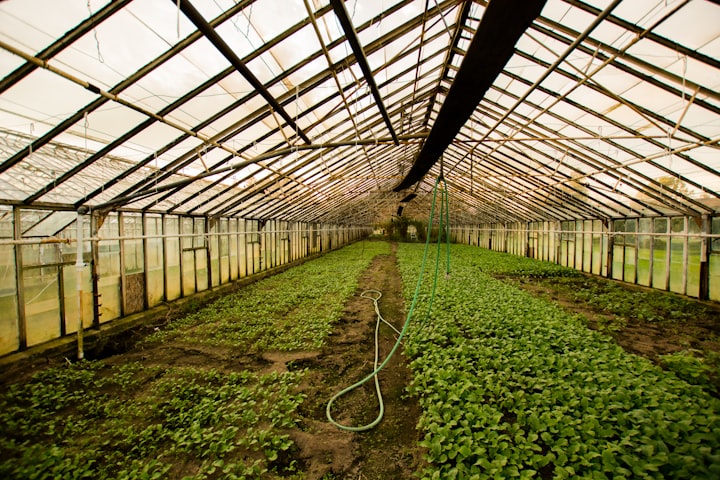impact of green house gases
"Understanding the Impact of Greenhouse Gases"

Greenhouse gases (GHGs) have a significant impact on the Earth's climate and environment. These gases trap heat in the Earth's atmosphere, creating the greenhouse effect, which is essential for maintaining a stable and habitable climate. However, human activities, such as burning fossil fuels, deforestation, and industrial processes, have increased the concentration of GHGs in the atmosphere, leading to several negative impacts:
Global Warming: The increased concentration of GHGs, particularly carbon dioxide (CO2), methane (CH4), and nitrous oxide (N2O), has led to global warming. This rise in global temperatures is causing glaciers and polar ice caps to melt, leading to rising sea levels.
Climate Change: Global warming has disrupted climate patterns, resulting in more frequent and severe weather events, such as hurricanes, heatwaves, droughts, and floods. These changes can have devastating effects on ecosystems, agriculture, and human communities.
Ocean Acidification: The absorption of excess CO2 by the oceans is causing ocean acidification, which harms marine life. This can lead to the destruction of coral reefs, reduced fish populations, and disruptions in the food chain.
Sea Level Rise: As the Earth's temperature increases, polar ice melts, and ocean waters expand due to thermal expansion. This leads to rising sea levels, threatening coastal communities and low-lying regions.
Extreme Weather Events: The altered climate caused by GHGs can result in more extreme weather events, including hurricanes, wildfires, and droughts. These events can cause significant damage to infrastructure, agriculture, and ecosystems.
Biodiversity Loss: Climate change can disrupt ecosystems and threaten plant and animal species with habitat loss and changing conditions. Many species may struggle to adapt or face extinction.
Human Health Impacts: Increased heatwaves and the spread of diseases carried by vectors like mosquitoes are linked to climate change. These changes can have serious health implications for human populations.
Economic Consequences: The impacts of climate change can lead to substantial economic costs, including damage to infrastructure, decreased agricultural productivity, and increased healthcare expenses.
Food and Water Security: Climate change can affect food production by altering growing conditions and leading to water scarcity, which can threaten food and water security for communities around the world.
Migration and Conflict: Climate-induced displacement of populations and resource scarcity can lead to migration and potentially increase the risk of conflicts over limited resources.
To mitigate the impacts of greenhouse gases, efforts are being made to reduce emissions through policies and practices that promote cleaner energy sources, energy efficiency, reforestation, and sustainable land use. Transitioning to a low-carbon economy and reducing GHG emissions is crucial to mitigate further damage to the environment and reduce the severity of these impacts.
Reducing greenhouse gas (GHG) emissions is essential to mitigate climate change and its associated impacts. Here are several strategies and actions that can help reduce GHG emissions:
Transition to Clean Energy:
Increase the use of renewable energy sources such as solar, wind, and hydropower.
Invest in energy-efficient technologies and practices in industries, buildings, and transportation.
Improve Energy Efficiency:
Upgrade building insulation and lighting to reduce energy consumption.
Replace outdated appliances and equipment with more energy-efficient models.
Promote energy-efficient transportation options such as electric vehicles and public transit.
Sustainable Transportation:
Encourage the use of public transportation, carpooling, and biking.
Promote the adoption of electric vehicles (EVs) and invest in EV charging infrastructure.
Implement fuel efficiency standards for vehicles.
Reforestation and Afforestation:
Plant more trees and restore degraded forests to absorb carbon dioxide from the atmosphere.
Practice sustainable forestry to reduce deforestation and forest degradation.
Sustainable Agriculture:
Adopt sustainable farming practices that reduce emissions, such as no-till farming and organic agriculture.
Improve livestock management to reduce methane emissions.
Reduce food waste to minimize methane emissions from landfills.
Waste Reduction and Recycling:
Increase recycling rates and reduce waste sent to landfills.
Implement waste-to-energy technologies to capture emissions from waste disposal.
Carbon Pricing:
Implement carbon pricing mechanisms such as carbon taxes or cap-and-trade systems to incentivize emission reductions.
Energy Policy and Regulation:
Enforce stricter emission standards and regulations for industries and power plants.
Encourage the phase-out of coal-fired power plants and other high-emission technologies.
Sustainable Land Use:
Promote smart urban planning and development to reduce the need for long commutes and encourage public transportation.
Preserve natural habitats and prevent urban sprawl.
Consumer Choices:
Make sustainable choices in daily life, such as reducing meat consumption and choosing energy-efficient products.
Support companies and products with low-carbon footprints.
International Cooperation:
Participate in international agreements and initiatives to address climate change, such as the Paris Agreement.
Collaborate with other nations to share technology and knowledge for emission reduction.
Education and Advocacy:
Raise awareness about the importance of reducing GHG emissions through education and advocacy efforts.
Encourage governments and businesses to take action on climate change.
Reducing GHG emissions is a global effort
In conclusion, the issue of greenhouse gas emissions presents a critical juncture in human history, one that demands immediate and sustained action. The consequences of our past and present emissions are already reshaping our world, with far-reaching impacts on the environment, economies, and societies. However, the journey towards a more sustainable future is not beyond our reach.
We must recognize that the solutions to the greenhouse gas problem are multifaceted, requiring a global effort across all sectors of society. It is incumbent upon governments, industries, and individuals to embrace sustainable practices, reduce emissions, and transition to cleaner energy sources. This transition is not just an obligation but also an opportunity for innovation, job creation, and improved quality of life.
As stewards of this planet, we have a moral responsibility to act swiftly and decisively. The urgency of addressing greenhouse gas emissions cannot be overstated. By implementing meaningful changes in our energy systems, transportation methods, and daily lifestyles, we can curb emissions, mitigate climate change, and secure a healthier, more stable future for ourselves and generations to come.
It is a challenge that transcends borders and ideologies, uniting us in a common cause. The battle against greenhouse gas emissions is not one we can afford to lose. Let us be defined by our resolve, our collective action, and our commitment to preserving the beauty and diversity of our planet. Together, we can steer the course toward a greener, more sustainable world and ensure a legacy of responsible stewardship for the Earth.
About the Creator
ahmed samir
"Unlocking the power of biology for a healthier, sustainable world."
"Bridging science and innovation to transform industries."
"Your trusted partner in bio-inspired solutions for a brighter future





Comments
There are no comments for this story
Be the first to respond and start the conversation.